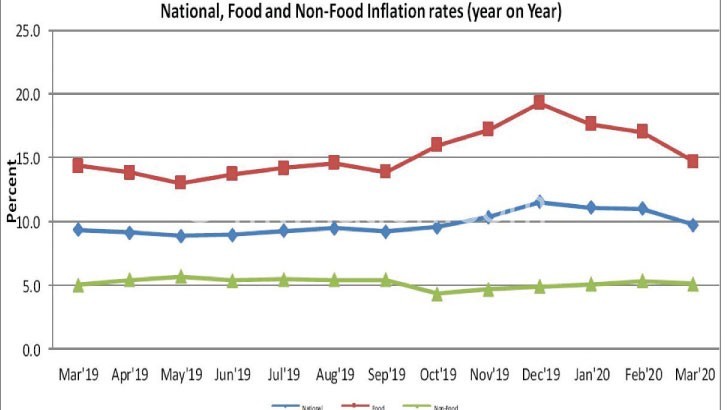Reserve Bank of Malawi (RBM) Governor Dalitso Kabambe says the central bank is still hoping to attain five percent inflation target by the first quarter of 2021 despite uncertainty caused by the coronavirus (Covid-19) pandemic.
Kabambe, speaking in Lilongwe on Tuesday, said although the central bank would have loved to remain in single digit, it will all depend on maize prices.
He, however, said the potential negative impacts of Covid-19 would come at a time when the country is enjoying macro-economic stability characterised by low inflation and interest rates, stable exchange rate and also high accumulation of a foreign exchange currency buffer Said Kabambe: “In the medium-term, our projection is still five percent and we are excited that we are now back to single-digit after three months.
“We would wish to continue with economic stability which we have achieved since 2017.But for now, we are concerned with greater uncertainty in the face of the pandemic.”

He said the bank is currently assessing the economic situation by using various economic models but hinted that the central bank expects the worst case, moderate case or mild scenario.
The country’s headline inflation decelerated by 1.2 percentage points in March 2020 to 9.8 percent, thanks to continued declining maize prices.
Maize, as part of the food component, impacts the country’s economy given that it constitutes 45.2 percent of the Consumer Price Index (CPI), which is an aggregate basket of goods and services for computing inflation.
For instance, the country’s staple grain’s production is projected to increase by 8.8 percent from 3 391 924 metric tonnes (MT) in 2018/2019 growing season to 3 691 866 (MT) in the 2019/2020 growing season due to favourable weather conditions and increased uptake of inputs by farmers.
Agriculture remains critically important to Malawi’s economy. The sector contributes about 30 percent to the gross domestic product (GDP) and the sector impacts growth in the other sectors by providing key inputs for the manufacturing sector and determining most household income levels, which drive demand in the service sectors
Agricultural analyst Tamani Nkhono-Mvula observed that inflation in Malawi is mostly a reflection of the food situation while the GDP figures are also a reflection of the performance of the agriculture sector and these, by extension, also affect such issues like interest and exchange rates.


